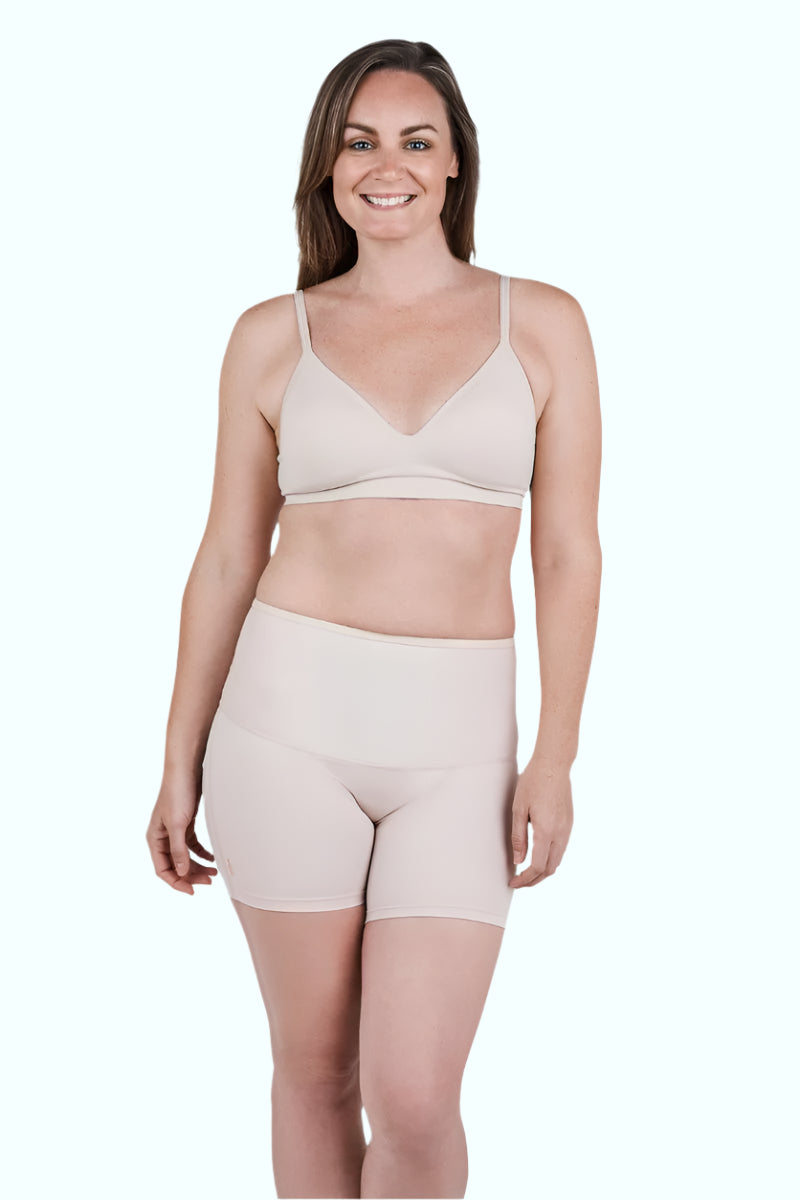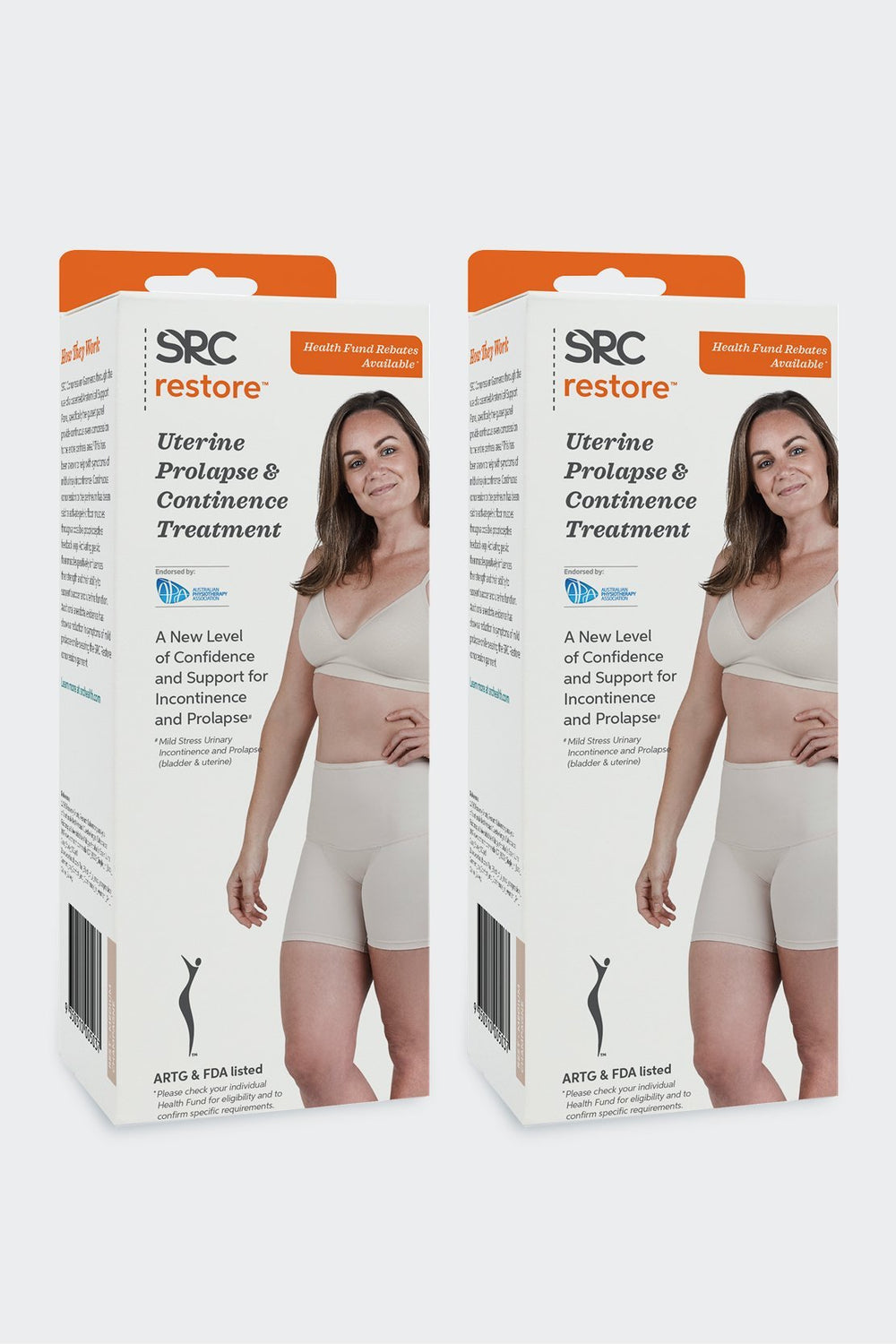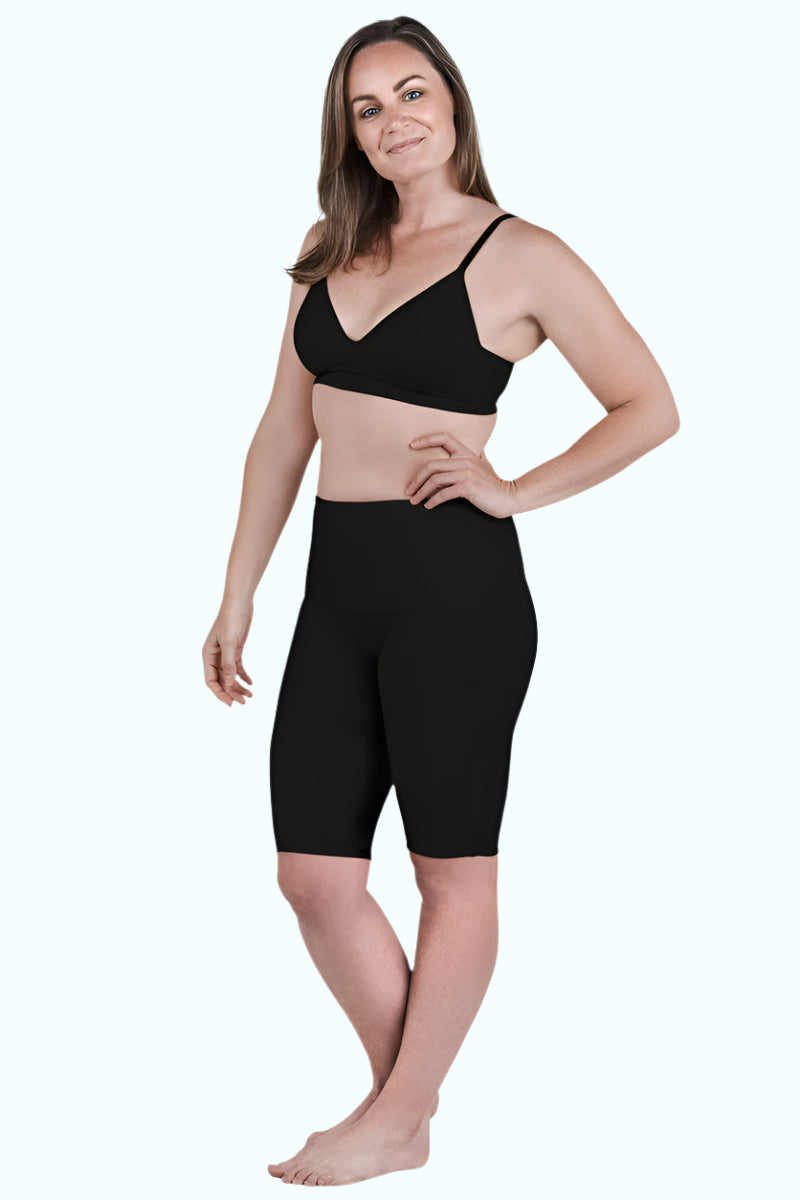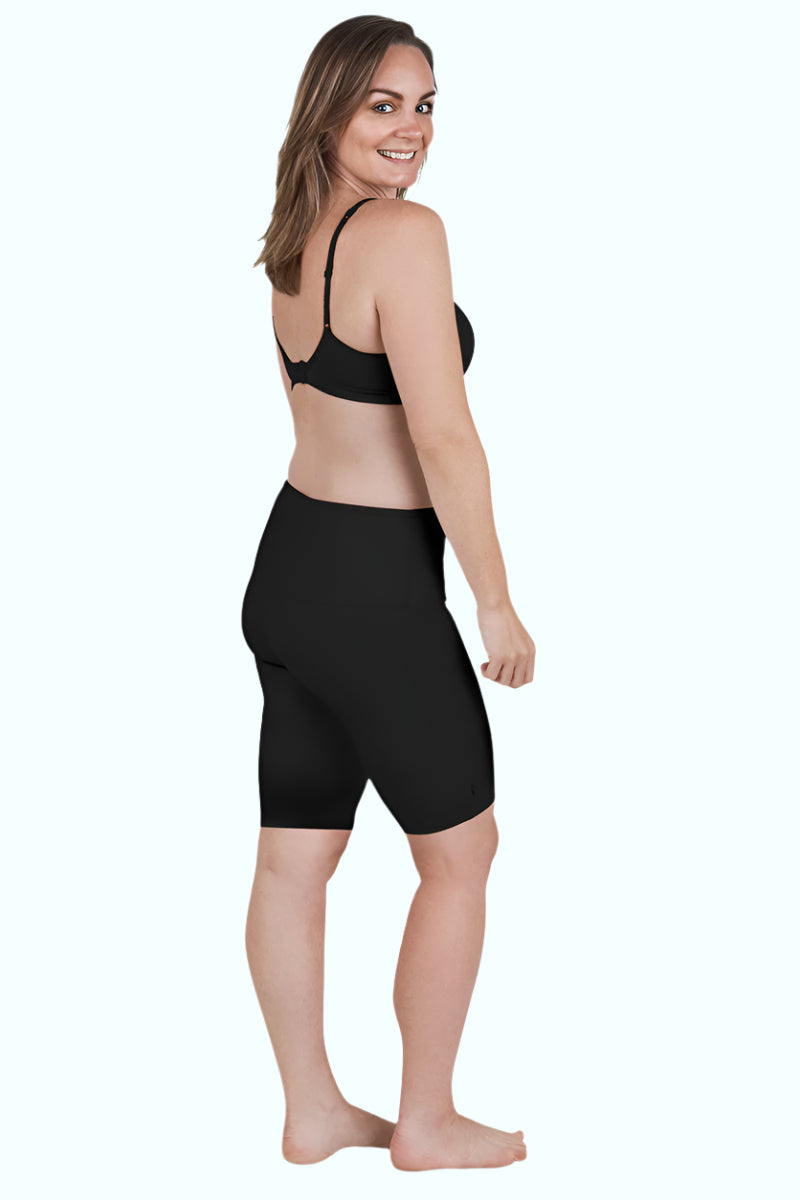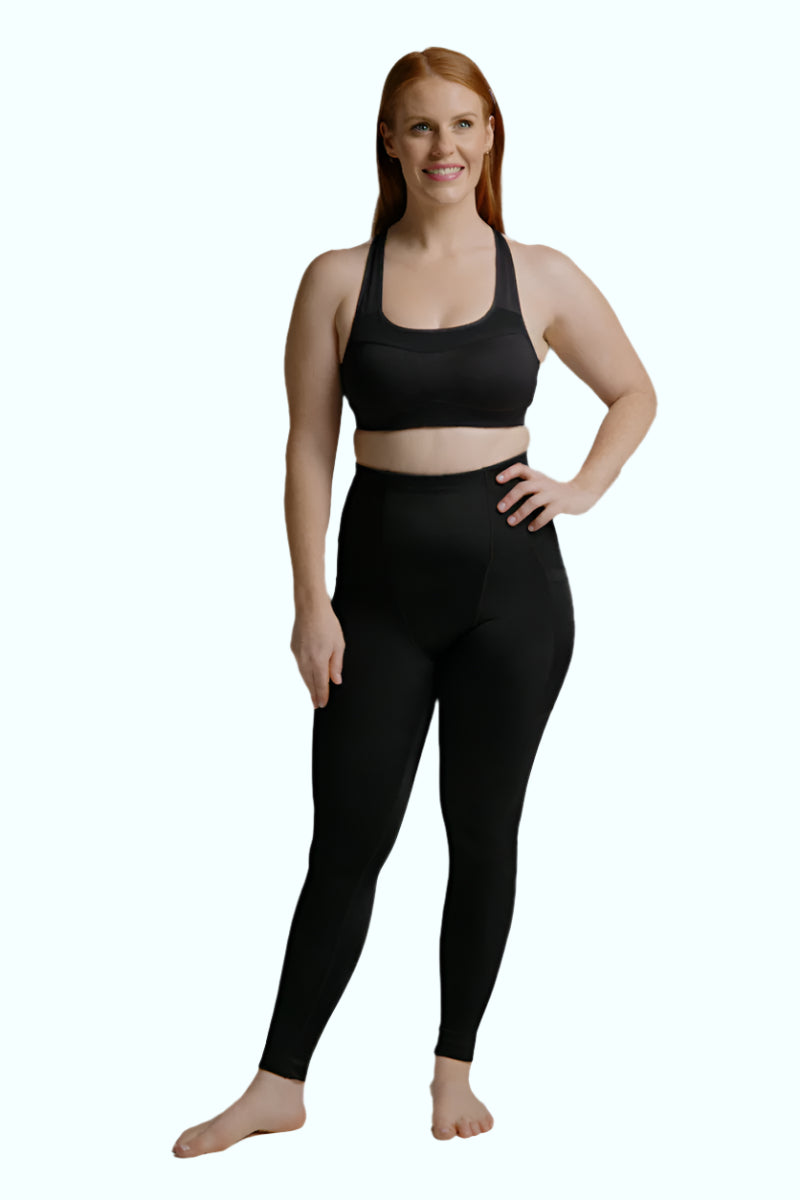15 Healthy Snacks to Eat During Pregnancy

During pregnancy, your body works overtime to support the growth of your baby. That’s why you may feel hungrier than usual and crave a variety of foods all the time. Pregnancy hunger pangs also serve as a signal that your body needs more energy, vitamins, and minerals to nurture your body and your developing little one.
Satisfying these cravings with healthy snacks can help you manage your hunger while providing essential nutrients for both you and your baby. Here are 15 healthy pregnancy snacks that will keep you satisfied, energised, and nourished.
1. Yoghurt
Probiotic yoghurt is found to improve metabolism, reduce inflammation, prevent infection, and minimise the risk of preterm births. [1] Greek yoghurt is richer in protein than your regular ones, making it an excellent choice for supporting your baby’s growth. For an added boost to your yoghurt try adding a sprinkle of 1 or 2 tablespoons of nuts for protein and fibre and diced fruits for extra vitamins.
2. Popcorn and Nuts
Many women experience constipation in the third trimester when the baby's increased weight puts the most pressure on their bowel. A high-fibre snack such as popcorn can help improve digestion, and its light and airy texture makes it easy to snack on without feeling too full. Try sprinkling a small amount of nuts to add protein and healthy fats for a crunchier and more satisfying snack.
3. Cottage Cheese

Cottage cheese is packed with protein and calcium. It’s also one of the versatile snacks for pregnant women—you can easily tailor it whether you want something sweet or savoury. Spread cottage cheese on whole wheat toast and put in some extra slices of banana and a drizzle of honey, and you’ll have a delicious, nutrient-rich snack.
4. Hard-boiled Eggs
Eggs are packed with nutrients such as protein, healthy fats, selenium, vitamins D, B-6 and B-12, as well as minerals like zinc and iron. Hard-boiled eggs are convenient to make and serve as a filling snack when you’re on the go.
5. Apple Slices
Apples are a great source of vitamin C, fibre, and polyphenols, which help raise your immunity against infection and disease. Red Delicious (dark red), Granny Smith (bright green), Golden Delicious (yellow), and Fuji (yellow-red) are some of the healthiest varieties, each offering a unique flavour and texture. [2]
6. Trail Mix
Make your own trail mix with a blend of salt-free nuts, sugar-free dried fruit, and dark chocolate. Nuts and dried fruit contain fibre, which may improve your digestion if you’re constipated. Dark chocolates contain less sugar and more fibre, iron, and other minerals. Homemade trail mixes are good pregnancy snacks that combine essential nutrients to keep you energised and satisfied.
7. Oats
Oats are gluten-free whole grains packed with important vitamins, minerals, fibre, and antioxidants. While they’re a popular breakfast option, you can enjoy oats as a snack throughout the day. Try them in a warm bowl of oatmeal topped with fruits and nuts, or add them to smoothies and baked goods for an extra nutritional boost.
8. Sunflower Seeds
Heartburn is a common symptom during pregnancy due to hormonal and body changes. Sunflower seeds are rich in vitamin E—an antioxidant that can help alleviate and prevent heartburn.
9. Fruit Smoothie

Smoothies can be packed with vitamins, minerals, and fibre while also providing hydration. Blend together your favourite fruits with Greek yoghurt or milk for a delicious and hydrating snack.
10. Nuts
Nuts such as almonds, pistachios, walnuts, cashews, pecans, peanuts, and Macadamia nuts make for easy snacks for late-night cravings. They offer a perfect balance of healthy fats, protein, and fibre. However, nuts are also high in calories, so it’s best to consume them in moderation and limit yourself to a small handful of nuts or about ¼ cups.
11. Watermelon
If you’re craving something sweet, you can skip the ice cream and go for a healthier alternative—melon. Watermelons are not only low in calories but also contain vitamins, minerals, and powerful antioxidants like lycopene and beta-carotene. And while a juicy slice of melon is refreshing on its own, you can get creative and blend it with a splash of lime and a pinch of sugar to make healthy frozen pops.
12. Sweet Potatoes
If you don’t want something heavy for breakfast but still want to fuel up for the rest of your day, sweet potatoes are fantastic healthy snacks for pregnancy. They are a great plant-based source of fibre, which keeps you full longer, reduces blood sugar spikes, and improves digestive health.
13. Berries
Berries make a flavourful snack without a high-calorie count and low glycemic index value, which is ideal for maintaining your daily calorie intake and blood sugar. Some of the best, highly nutritious berries to eat during pregnancy are blueberries, raspberries, goji berries, strawberries, and acai berries.
14. Avocados
Avocados are packed with healthy fats, folate, and potassium. Healthy fats promote the development of your baby’s skin, brain, and tissues. Folate helps prevent neural tube defects and developmental abnormalities of the brain and spine. Lastly, potassium helps relieve leg cramps which are common in pregnancy, especially in the late trimester.
15. Dried Fruits
Dried fruits contain the same amount of nutrients as fresh fruits, just without all the water. They are healthy pregnancy snacks that you can easily carry in your bag for a quick energy boost during the day. However, dried fruits also contain high amounts of natural sugar, so it’s important to consume them in moderation.
Foods to Avoid or Limit
When you’re pregnant, your immune system becomes more vulnerable, making you more susceptible to foodborne illnesses and infections. Certain snacks that are generally safe for others may pose risks for you and your baby. Here are some of them:
1. Raw or Undercooked Eggs
Raw eggs can cause Salmonella, which can cause food poisoning. Although there are strict food safety guidelines implemented in Australia to prevent such risk, the possibility of contamination still exists, especially among those with vulnerable immune systems. Avoid snacks or dishes that contain raw or undercooked eggs as ingredients.
2. Soft Cheeses
Soft cheeses can carry Listeria bacteria. Pregnant women are 10 times more likely to contract listeriosis, which can cause miscarriage or stillbirth. Steer clear of soft cheeses like Brie, Camembert, feta, Roquefort, panela, queso fresco, and queso blando for precaution. [3]
3. Sushi
Sushi and sashimi may contain anisakis worms and other parasites that can absorb nutrients from your body that should’ve been for you and your baby. In many restaurants, cafés, and shops, ready-made sushis are displayed at near room temperature, which can serve as an ideal environment for Listeria bacteria to multiply.

4. Fish With Mercury
Fish is an excellent source of protein, vitamins, and minerals. However, some types of fish have high mercury content, which can damage the nervous systems of babies or young children. Foeti are particularly at risk because their brains are still developing.
The Australian Dietary Guidelines recommend that pregnant women limit their consumption of shark (flake), broadbill, marlin, swordfish, orange roughy (sea perch), and catfish to just one serving (150g) per week, with no other types of fish to be consumed the same week.
5. Ready-to-Eat Meat
Listeria can survive and multiply at cold temperatures inside the fridge. [4] This means that even pre-packaged, seemingly safe meats can harbour harmful bacteria that can lead to serious complications for both you and your baby. To minimise your risk, it’s advisable to avoid consuming ready-to-eat meats unless they are heated to steaming hot (165°F or 74°C).
6. Pâtés or Meat Spreads
Pâtés and other refrigerated meat spreads are made of perishable meats that may contain harmful bacteria like Listeria. Additionally, liver-based products contain high amounts of vitamin A, which can be harmful to the baby in large quantities. Canned meat spreads are a safe alternative, although not exactly the healthiest option, during pregnancy.
7. Unwashed Fruits and Veggies
Unwashed or improperly washed fruits and vegetables can carry harmful bacteria like Salmonella, E. coli, or Listeria. Always wash produce thoroughly to remove any dirt, bacteria, or pesticide residue before eating. It is also recommended to store them in the refrigerator at below 4°C or 40°F.
8. Raw Sprouts
Bacteria can get into sprout seeds before the sprouts can grow. Once the bacteria enter through the cracks in the shell, they are nearly impossible to wash out. The worst is that if pathogenic bacteria are present in or on the seed, they can significantly multiply during sprouting, even under clean conditions. It’s best to avoid eating raw sprouts of any kind, including mung bean, clover, radish, and alfalfa.
9. Cold-Smoked Salmon
Smoked salmon is served either cold-smoked or hot-smoked. Hot-smoked salmon is usually brine-cured and smoked until its internal temperature reaches 57℃ (135℉) or higher, which means it’s fully cooked. Cold-smoked salmon, on the other hand, is dry- and under-cooked. This makes the latter more susceptible to several viral, bacterial, and parasitic infections.
10. Raw Shellfish
Shellfish like oysters, clams, and mussels can carry harmful bacteria or parasites when consumed raw, leading to foodborne illness. Cooking shellfish thoroughly eliminates these risks and makes it safe for consumption.
How Many Calories Do You Need to Eat When Pregnant
During pregnancy, calorie requirements vary depending on your pre-pregnancy weight, activity level, and stage of pregnancy. On average, most pregnant women need about the following amount of calories to support the baby’s growth and provide energy for the body’s extra demands:
- First trimester: 1,800 calories per day
- Second trimester: 2,200 calories per day
- Third trimester: 2,400 calories per day
Keep in mind to focus on the quality of the calories you consume rather than just the quantity. Consult with your healthcare provider for personalised caloric recommendations tailored to your specific needs and health status.
Snack Your Way to a Healthier Pregnancy
Remember, a healthy diet during pregnancy is all about choosing snacks that contribute positively to your well-being and your baby’s development. Go for healthy pregnancy snacks that provide essential vitamins, minerals, and energy while supporting your baby’s growth and your overall health.
As your body changes, wearing proper pregnancy garments like SRC maternity leggings can also contribute to your overall well-being by providing comfort and much-needed physical support. These garments are designed to alleviate strain, allowing you to sit more comfortably whether you're enjoying a snack at home or on the go. The added support improves posture and reduces fatigue, making it easier to relax and enjoy your food without discomfort from your changing body shape.
If you have specific questions about your diet, including caloric intake or nutritional requirements, don't hesitate to consult your healthcare provider. Every pregnancy is different, and personalising your nutrition can help ensure both you and your baby stay healthy and strong.
References:
- https://ncbi.nlm.nih.gov/pmc/articles/PMC7449615/
- https://www.healthline.com/nutrition/what-is-the-healthiest-apple
- https://www.healthline.com/health/pregnancy/cheese-pregnancy#guidelines
- https://www.livescience.com/54882-listeria-outbreak-frozen-foods.html
- https://www.healthline.com/health/papaya-in-pregnancy#latex-in-unripe-papaya
- https://bmcpregnancychildbirth.biomedcentral.com/articles/10.1186/1471-2393-14-288
FAQs
1. What fruit can I not eat while pregnant?
- Unripe papaya. Green-skinned papaya has a high concentration of latex, which might trigger uterine contractions leading to early labour. The papain enzyme unripe papaya contains might also weaken vital membranes that support the foetus. [5] On the other hand, ripe, yellow-skinned papaya is a safe and healthier alternative for pregnant mums.
- Pineapple. While pineapple is generally safe to eat, it should be consumed in moderation. Some types, such as Smooth Cayenne, contain high acid content, which can cause heartburn and acid reflux during pregnancy.
2. Does my baby feel hungry when I’m hungry?
While there’s no clear-cut answer if they feel hungry, studies have shown that they usually tend to move around more inside the womb when the mum is hungry. [6] This is due to the lowered blood sugar levels in the mum and foetus.
3. Is it bad to ignore hunger while pregnant?
Ignoring hunger, especially frequently and for extended periods, can lead to nutritional deficiencies and other health issues for both you and your baby. Always speak to your doctor before making any significant changes to your diet.
4. Is it okay to go to bed hungry while pregnant?
It’s not recommended to go to bed hungry, as you will need to keep your blood sugar levels steady through the night. If you always feel hungry at night, consult your doctor as it may be a symptom of gestational diabetes, which refers to blood sugar elevation during pregnancy.
5. What foods help a foetus grow?
Protein-rich foods help promote your baby’s growth. Great sources of protein include lean meat, poultry, seafood, eggs, milk, peanut butter, and fish.
6. What to drink when pregnant?
Water is the best source of hydration. To get enough fluid in your diet, aim to have six to eight 200mL glasses of water every day. If you want to add some flavour to your drink, having pasteurised milk, tea, and juice is also recommended.
7. What snacks are good for milk supply?
Some foods have been associated with increasing milk supply, known as galactagogues. Foods that are hydrating are also another great choice to help your body produce milk. Here are some of them you can incorporate into your diet:
- Oatmeal protein balls
- Crackers and cheese
- Dried fruit
- Fruit and yoghurt smoothie
- Peanut butter toast and banana
- Dark chocolate and strawberries
- Pumpkin smoothie
- Veggie egg muffins






